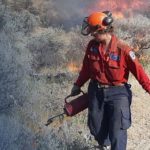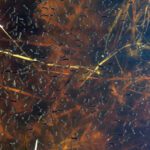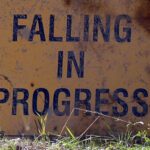Home »

MP’s climate emergency ideas from lifetime of environmentalism
By Anne Jardine
Op-Ed Commentary
In his role as Kootenay-Columbia Member of Parliament, Wayne Stetski lives his values.
He serves as vice-chair of a parliamentary committee that advises the Government of Canada on matters of environment and sustainability.
In an April statement to Parliament on the climate emergency, he said: “We recently learned that Canada is warming at twice the global average. This finding should be a wake-up call for all of us… Our committee has just tabled two reports on clean growth and climate change and on forestry, agriculture and waste management. The two reports include a total of 34 recommendations on how Canada can lead internationally.
“Climate change is no longer a distant threat, and the cost of inaction is too great. The impacts are already being felt in my riding of Kootenay-Columbia and across the country. My constituents are calling for stronger action – like the high school students who protested in Nelson, or the Grade 5 and 6 Ktunaxa students who wrote me letters about polar bears and the environment, or my granddaughter Lalita who worries about whether we will have a future at all. Canadians expect us to work together and we must all commit to doing so. Let’s start by agreeing to more ambitious greenhouse targets and by making climate change a non-partisan issue.”
In this statement, Stetski acknowledges the fact that we are in a climate emergency. His values are clear. He takes seriously the messages of the youngest of his constituents who have the biggest stake in the future that our actions or inactions will bring, and he calls for a non-partisan approach to humanity’s greatest challenge.
The non-partisan aspect is essential, he said in a Cranbrook Town Hall Meeting on August 19, “We have all seen how when governments change, they reverse the rules and policies set in place by previous governments. And then with the next change in leadership, policies change back again. Climate change is too great a challenge to allow that constant flipping back and forth. We need to let policy be informed by the science, not the political flavour of the day.”
For Stetski, consensus is possible. “It’s time to move beyond partisan bickering over climate change and recognize the moral imperative to act. We need to work together to implement comprehensive solutions if we’re going to succeed in protecting the planet and quality of life for future generations.”
Stetski’s commitment to the environment is not just following a current trend. It began in childhood. “The very first book I took out of a library was The Call of the Wild by Jack London. That inspired me both about nature and to become a life-long reader,” he recalls.
Growing up in western and Arctic Canada, he developed deep respect for the power of nature, witnessing first-hand the natural processes of climate and landscape as well as the precariously narrow margins of survival in the north. Through the dramatic story of a Klondike sled dog, young Wayne’s curiosity and imagination were awakened.
Books continued to make a strong impact on Stetski. “Later on, I read Rachel Carson’s Silent Spring which stirred my passion for protecting the environment,” he says. “By the time I was ready to head to university my plan was to save the planet from pollution, so I enrolled in the sciences.”
He earned a Bachelor of Science in Ecology and his teaching degree at University of Manitoba. He looks back at that time: “While going to university I was privileged to work as a Seasonal Park Naturalist in Pacific Rim National Park Reserve on the west coast of Vancouver Island and in Glacier and Mount Revelstoke Parks here in the Kootenays. That was it – I knew I would devote my career to protecting and preserving nature and educating people about the environment.”
Since that youthful epiphany, Stetski has worked at many conservation related jobs, always keeping to his central goals. He helped manage the Manitoba Provincial Parks and the BC Provincial Parks systems. He worked as a BC Ministry of Environment manager for the Kootenays Parks, Wildlife, and Ecosystems, and as a manager for the East Kootenay Conservation Program. He continued post graduate studies in Natural Resource Management at Simon Fraser University.
Moving to politics became a next step. It was a way to get closer to where resources are allocated and decisions are made about protecting or exploiting nature. Governments at all levels set the limits and directions of land use, urban development, and industrial growth. They set guidelines about how we interact with nature.
Stetski wants to be at the tables where these guidelines are drawn up, and he wants to advance the needs of the natural world as the main priority in the mix. As a mayor, and now as member of parliament, his career continues to be devoted to “protecting and preserving nature and educating people about the environment.”
Lead image: Wayne Stetski at Revelstoke National Park Summit Meadow in full bloom. Photo submitted







